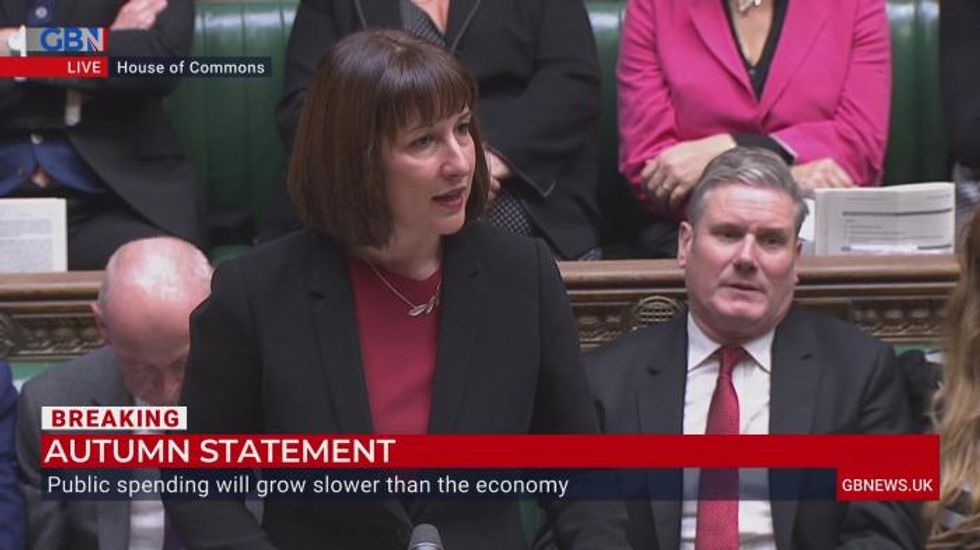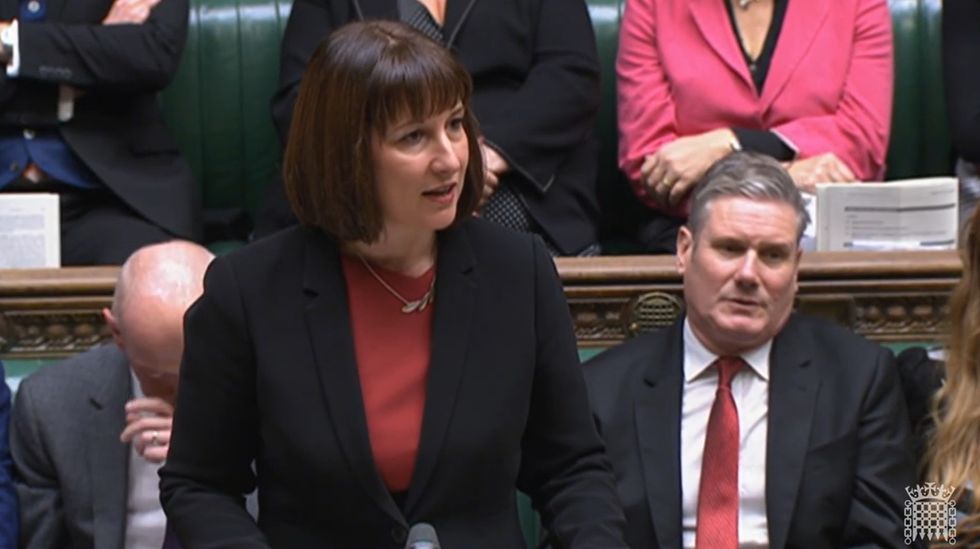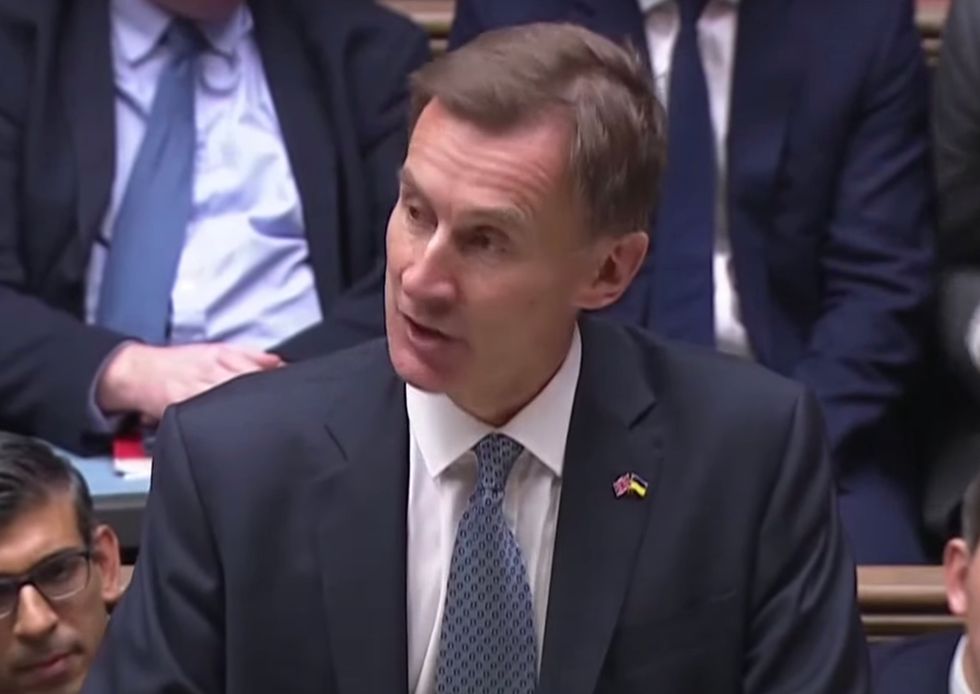Don't Miss
Most Read
Trending on GB News
Shadow Chancellor Rachel Reeves has slammed Conservative Government after they introduced a raft of spending cuts in their Autumn Statement.
Chancellor Jeremy Hunt outlined a raft of spending cuts in the budget.
Responding, she said: “The end of 2022. Three Prime Ministers, four Chancellors, and four budgets later, and where do we find ourselves? In a worst place then we started the year.
“Inflation spiralling, growth plunging, living standards falling. Britain is a great country with fantastic strengths, but because of this Governments’ mistakes, we are being held back.
Rachel Reeves says the UK finds itself in a worse position now than it did at the start of the year.
House of Commons
“What people will be asking themselves at the next election will be this: Are me and my family better off with a Conservative government? The answer is no.
“The mess we are in is the result of 12 weeks of Conservative chaos, but also 12 years of Conservative economic failure.
“Growth dismal, investment down, wages squeezed, public services crumbling.
“And what does the Chancellor have to offer today? More of the same."
Mr Hunt was setting out a package of £30 billion of spending cuts and £24 billion in tax rises over the next five years.
His package is in stark contrast to his predecessor Kwasi Kwarteng’s ill-fated plan for £45 billion of tax cuts, less than two months ago, which spooked the markets, pushed up the cost of borrowing and contributed to the downfall of Liz Truss’ short-lived administration.
Mr Hunt said: “I understand the motivation of my predecessor’s mini-budget and he was correct to identify growth as a priority. But unfunded tax cuts are as risky as unfunded spending.”
Mr Hunt said repairing the nation’s finances involved “taking difficult decisions”.
He told MPs: “Anyone who says there are easy answers is not being straight with the British people: some argue for spending cuts, but that would not be compatible with high-quality public services.
Jeremy Hunt outlined a raft of spending cuts.
Image: Parliament
“Others say savings should be found by increasing taxes, but Conservatives know that high tax economies damage enterprise and erode freedom.
“We want low taxes and sound money. But sound money has to come first because inflation eats away at the pound in people’s pockets even more insidiously than taxes.
“So, with just under half of the £55 billion consolidation coming from tax, and just over half from spending, this is a balanced plan for stability.”
He announced:
– The threshold at which the 45p top rate of income tax is paid will be reduced from £150,000 to £125,140, although different rates apply in Scotland.
– The income tax personal allowance, higher rate threshold, main national insurance thresholds and the inheritance tax thresholds will be frozen until April 2028, something which will result in more people paying more tax as a result of “fiscal drag” as wages increase.
– The windfall tax on oil and gas giants will increase from 25% to 35% and a 45% levy on electricity generators will help raise an estimated £14 billion next year.
– Tax-free allowance for capital gains will reduce in 2023-24 from £12,300 to £6,000 and again to £3,000 in 2024-25.
– Electric vehicles will no longer be exempt from vehicle excise duty from April 2025, to make the motoring tax system “fairer”.
– Government spending will continue to increase in real terms every year for the next five years, but at a slower rate than previously planned.
– Stamp duty cuts announced in Mr Kwarteng’s mini-budget will now be time-limited, ending on March 31 2025.
– The Government would protect the increases in departmental budgets already set out in cash terms for the next two years, meaning real-terms cuts due to inflation and pressure on public sector wages.
– The defence budget will keep meeting the Nato target of 2% of GDP but the overseas aid budget will not be returned to its goal of 0.7% of national income “until the fiscal system allows”.
– An extra £2.3 billion per year will be invested in schools in England over the next two years.
– The implementation of social care reforms will be delayed for two years.
– The NHS budget in England will increase by an extra £3.3 billion in each of the next two years.













